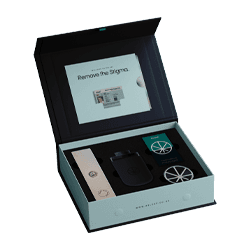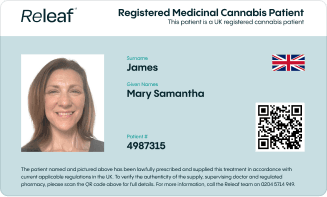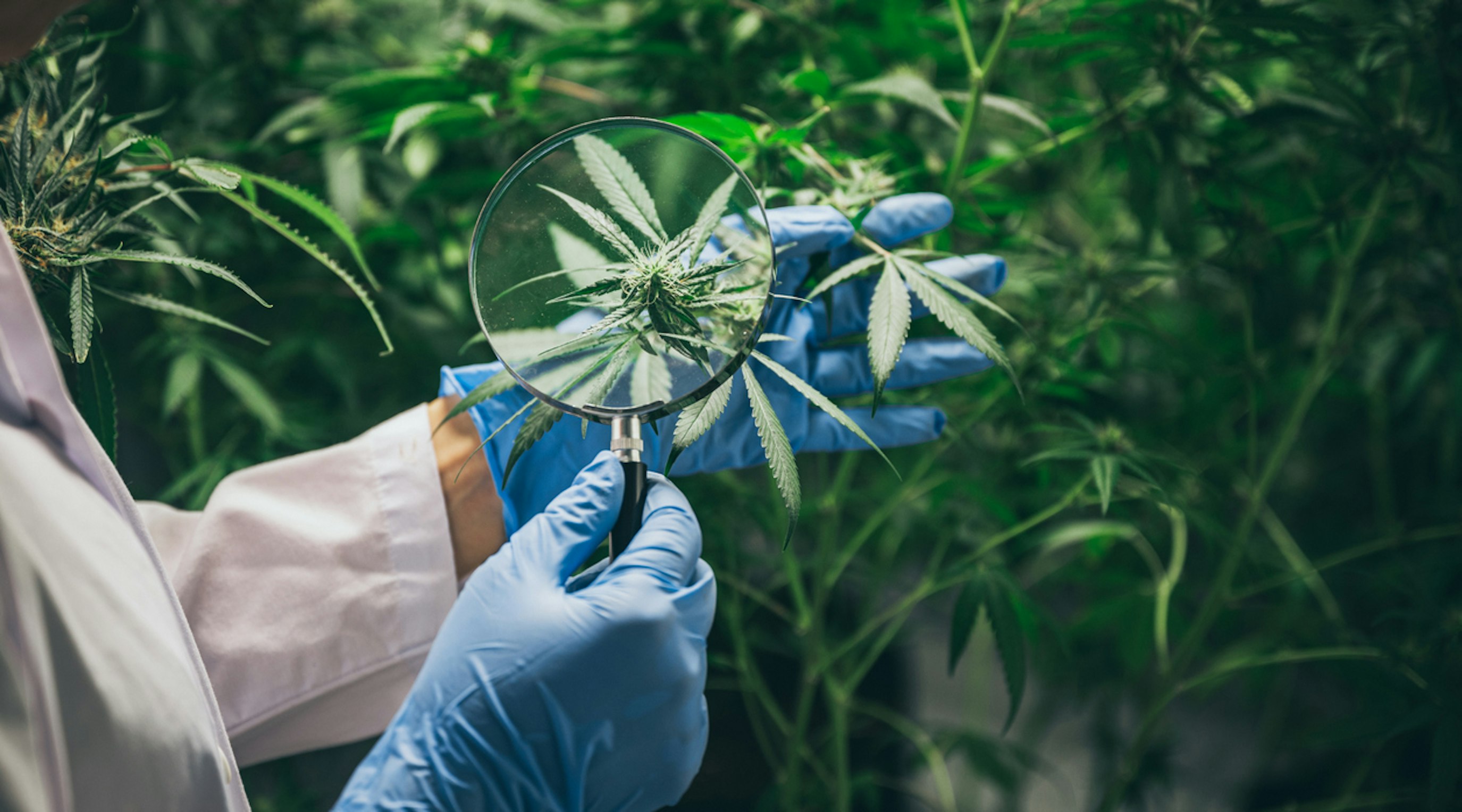This survey found 92% of healthcare professionals would prefer their patients tell them if they are using cannabis illegally to manage a medical need, but surprisingly, 10% were still unaware that unlicensed cannabis medicines could be legally prescribed in private settings.
73% of those who participated said they would prescribe medical cannabis if it was made available on the NHS, or positively reviewed by the National Institute of Care Excellence (NICE). And only 5% of those who responded, said they did not support the use of medical cannabis.
CEO of Grow Pharma, Pierre Van Weperen said:
“The findings of our survey are very promising, as they highlight how a lot of the problems faced by cannabis users in healthcare are caused by a lack of education, rather than a large amount of stigma.”
The survey: British healthcare professionals on medical cannabis
Grow Pharma distributed their survey to 333 healthcare professionals, including consultants, trainees, researchers, pharmacists, GPs, and nurses across the UK.
The survey consisted of 19 questions designed to explore how medical cannabis treatment options have been incorporated into healthcare services in the last five years, and display a diverse pool of opinions that spreads across different healthcare and medical professions. Of those invited, 51 took part.
To achieve the most honest answers, the responses were submitted anonymously to protect the participants' privacy. However, as a consequence, this does mean that there is no data available from this study to differentiate which professional positions within the healthcare sector are more, or less, supportive of these options.
Survey findings: How many healthcare professionals in the UK discuss medical cannabis?
This survey discovered almost one in four (24%) of those who participated have prescribed unlicensed cannabis-based medicines to a patient(s) in the past, or have provided ongoing care for patients on an agreed medical cannabis treatment plan.
The same percentage (24%) said they have discussed the potential benefits and possible risks associated with medicinal cannabis in a clinical setting, but have not prescribed these medications. While 10% said they do refer, or have referred, patients to other healthcare professionals or specialists at a cannabis clinic so they can explore these options further.
The survey also found that an overwhelming majority (92%) of healthcare professionals would prefer to know if their patients are using illicit cannabis for medical or therapeutic purposes, and 80% have had patients disclose this to them in the past.
Survey findings: Are healthcare professionals in the UK willing to prescribe unlicensed medical cannabis?
This survey also asked its respondents if they would be willing to issue prescriptions for unlicensed cannabis based medicines, and if so, under what circumstances.
It found:
- 24% have previously prescribed medical cannabis, or provided ongoing care to patients using cannabis for medicinal purposes.
- 73% would prescribe medical cannabis if it had a positive review from the National Institute of Care Excellence (NICE), or was made available on the NHS.
- 18% said they may prescribe medical cannabis with certain other conditions in place, e.g if they felt trusted or supported by their senior colleagues, or they would be willing to prescribe to a patient taking part in a clinical trial.
- 9% explicitly expressed that they would not prescribe unlicensed cannabis medicines.
Survey findings: What do UK healthcare professionals want to know about medical cannabis?
The survey also explored whether healthcare professionals felt they required more information, or education, about unlicensed cannabis medicines.
Over three quarters (76%) said they felt they were either ‘somewhat’ or ‘very’ knowledgeable about medical cannabis. But, 9% did admit that they’d like to learn more so they can manage a patient who is well experienced in medical cannabis, or is well-informed on the topic already.
Other subjects that healthcare professionals were eager to learn more about when it comes to medical cannabis were:
- The potential risks and associated side effects (16%)
- How medical cannabis treatments are dosed (14%)
- How medical cannabis treatments are monitored or assessed for efficacy (13%)
- How treatments differ depending on the cannabis strain or product formulation (13%)
- The legal and regulatory landscape surrounding medical cannabis in the UK (12%)
- How medical cannabis treatments are managed alongside other medications (10%)
- How the endocannabinoid system interacts with medical cannabis (10%)
Survey findings: What are healthcare professionals concerned about when it comes to medical cannabis?
Grow’s survey also asked what made these healthcare professionals concerned about prescribing medical cannabis or cannabis based medicines. The most common concern, shared by 26% of respondents, was the unclear dosing guidelines for medical cannabis treatments and medicines.
Other reasons healthcare professionals said they were concerned about medical cannabis prescribing included:
- A lack of evidence or research (24%)
- Potential for abuse/misuse (21%)
- Other reasons (18%)
- Legal or ethical concerns (11%)
It is important to emphasise that in the UK, only doctors are permitted to prescribe medical cannabis. This must be taken into account when evaluating these statistics, because this survey was distributed to a range of different healthcare professionals, including to those who are unable to legally prescribe cannabis, and so, this may have influenced these responses.
Survey limitations and considerations
Although the findings in this survey can be viewed in an extremely positive light by those in the UK’s medical cannabis industry, there are some limitations that need to be considered.
Small survey sample size
Because this survey was so small, it is essential to remember that these findings may not be an accurate representation of the overall attitude healthcare professionals typically have towards medical cannabis in the UK.
In this survey, an overwhelming statistic such as 100% only equates to 51 responses, and represents the feelings of just 51 healthcare professionals. To put this into perspective, in 2021, it was estimated that there were around 659,000 healthcare professionals actively working in the UK.
The respondent's geographic and personal demographic data (like age, gender, race) are also unclear, and so, it is hard to say whether this survey is representative of the attitudes held by all those employed in healthcare professions across the UK.
Relevance theory
Relevance theory is widely accepted in the world of psychology, which theorises people are more likely to engage or respond to surveys when they find the topic interesting or relevant to them.
This could explain why these findings, on the whole, were largely positive for the medical cannabis industry, and display an overall acceptance of cannabis based medicines by healthcare professionals in the UK, as well as an intrigue to know more.
However, with this in mind, relevance theory would also suggest that those who are strongly opposed to medical cannabis would also feel particularly inclined to make their feelings known on the subject. But, in reality, only 5% of the respondents in this survey said they did not support medical cannabis treatment options.
What do these findings mean for the UK medical cannabis industry?
This study makes it clear that the healthcare professionals involved in this survey take an active approach, and want to be informed if their patients are using cannabis for medicinal purposes, even if it is sourced illegally.
According to these findings, most healthcare professionals are optimistic and open-minded about medical cannabis, which can be seen by the cannabis-based discussion taking place. Yet, understandably, many still want to exercise caution when it comes to prescribing these options, until they receive further guidance from healthcare authorities like the NHS or NICE.
When compared to similar surveys from the past, these results indicate that there is a growing acceptance and interest in cannabis-based treatments amongst healthcare professionals in the UK. For example, in 2021, the PCCN found 29% of GP’s felt there were no benefits to cannabis based medicines, yet in Grow Pharma’s 2024 survey only 5% of those who responded, said they did not support the use of medical cannabis.
Although this survey was small in scale, it does underscore a significant shift in perspectives and experiences with medical cannabis held by those in the UK healthcare services. As the industry continues to evolve, it is important to continue to research the attitudes held by healthcare professionals so their concerns can be addressed, and so patients can receive the top quality, well-informed care.
Comments from Grow Pharma’s CEO: Pierre Van Weperen
We reached out to Grow Pharma to ask how they feel about these findings. Their CEO Pierre Van Werepen commented:
“The findings of our survey are very promising, as they highlight how a lot of the problems faced by cannabis users in healthcare are caused by a lack of education, rather than a large amount of stigma.
Doctors are willing to learn and want to improve the care that they provide. However, education may partly be slowed as patients may not want to disclose cannabis use as they’re worried of any resultant negative effects.
We think to help this, asking if patients use cannabis should be a standard question asked by GP’s, along with reassurance that this disclosure won’t get you in trouble.”






